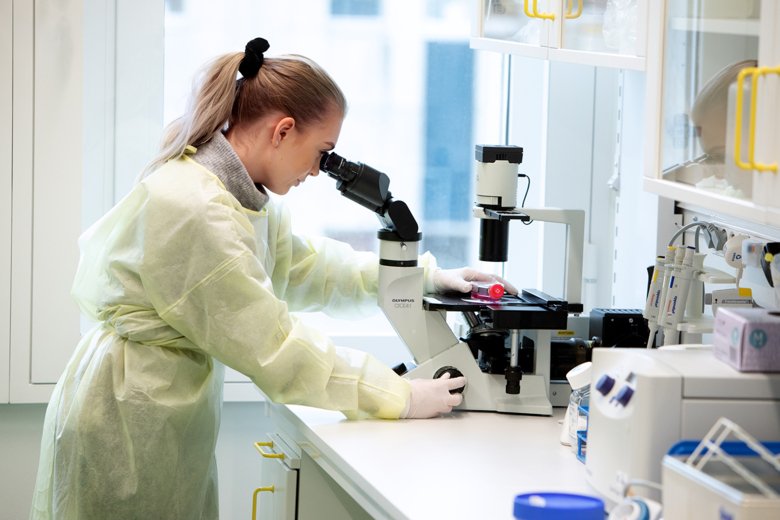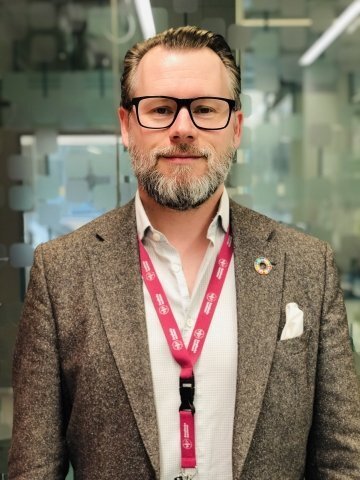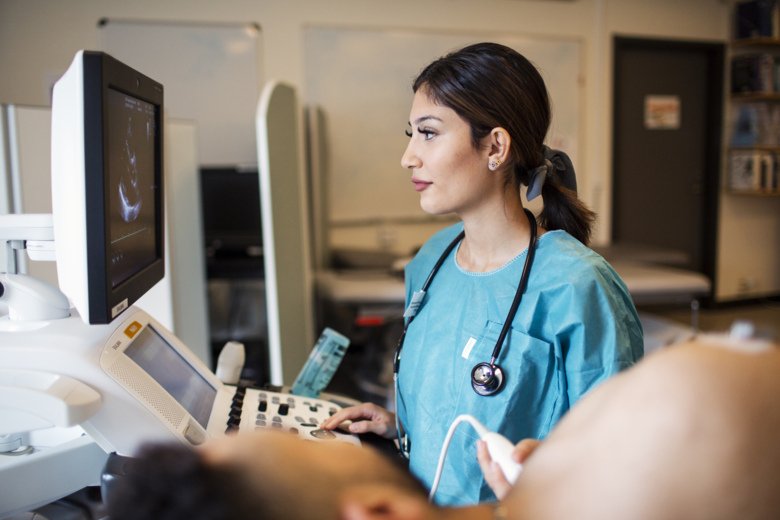New Master's programme for Biomedical Scientists
Karolinska Institutet's programme of study is expanding. From autumn 2023, KI will offer a new Master's Programme in Biomedical Laboratory Science. The programme is given in Swedish and aimed at working professionals.

Diagnoses in healthcare are often based on laboratory analyses or physiological examinations performed by a biomedical scientist. A biomedical scientist is a broad and important profession within healthcare and the role is in constant change. There continues to be a major shortage of trained personnel and beginning in fall semester 2023 KI will strengthen the educational opportunities for biomedical scientists by implementing a Master's Programme in Biomedical Laboratory Science to meet these demands.
Clearer career paths
Today, KI educate biomedical scientists on the Biomedical Laboratory Science Programme, which leads to a bachelor's degree in biomedical laboratory science and a professional degree as a biomedical scientist. However, for those who want to study further, the educational options in Sweden are limited.

To retain biomedical scientists and attract new ones, Lars Frelin, Programme Director for the new Master's Programme in Biomedical Laboratory Science, states that the profession needs to be attractive with the opportunity to develop and broaden competences and career opportunities.
The new master's programme at KI offers three specialisations: advanced molecular medicine, advanced pathology and advanced clinical physiology. The programme is structured to clearly link to the Biomedical Laboratory Science Programme and create clear career paths for professional biomedical scientists.
“Our goal has been to create a coherent programme of study that connects to the profession, links to the career ladders that exist in healthcare and relatively quickly leads to new skills for advancement clinically or as an entrance to doctoral studies”, says Lars Frelin.
High demand for education within the profession
“We welcome the opportunity to further train biomedical scientists under the guidance of experienced subject matter experts. We are glad to see that the education is linked to the local competence ladders already established within the healthcare thus enabling biomedical scientists to be employed in positions with a high degree of independence. It is of utmost importance that additional career paths are created which will motivate the employees and contribute to further raising the level in clinical physiological diagnostics, says Lars-Göran Nordin, Head of Clinic at the Department of Clinical Physiology, Danderyd Hospital.

A biomedical scientist is a broad profession. You can work in everything from microbiology to neurophysiology, forensics to sports medicine or in research and development. Rapid development in the fields contributes to increased demand for further education.
“The development in medical diagnostics and precision medicine is going extremely fast, and our biomedical scientists need high clinical and academic competence to lead and operate it. This programme really seems to provide those conditions for biomedical scientists, and I look forward to supporting and following their skills development as well as contributions to care”, says Mathias Axelsson, Head of Function, Medical Diagnostics Karolinska, Karolinska University Hospital
Educational format adapted for professionals
To attract working professionals, the master's programme is given remotely and at half speed. As the education is given remotely, the hope is to also make it possible for biomedical scientists around Sweden to take part in the programme.
“We have considered professionals and employers in the development of both length and form of the programme. It is done remotely with a limited number of physical meetings”, says Lars Frelin.
Fact box
Program start
Fall semester 2023
Language of instruction
Swedish
Application
Made through antagning.se between March 15, 2023 and April 17, 2023
Responsible department
Department of Laboratory Medicine
